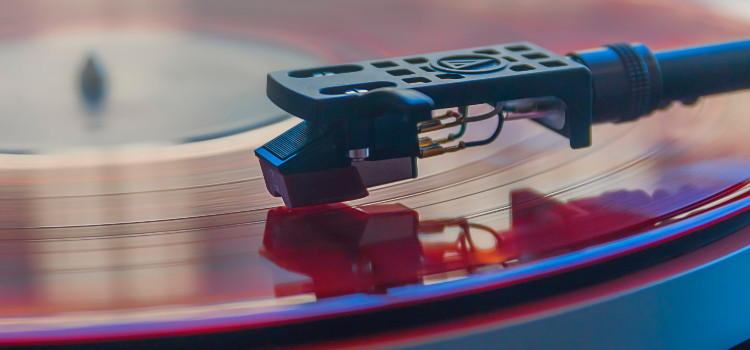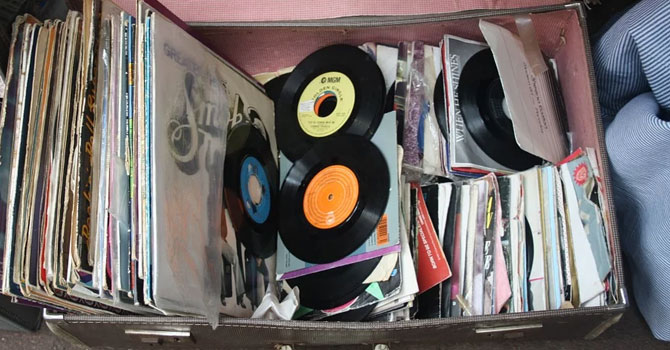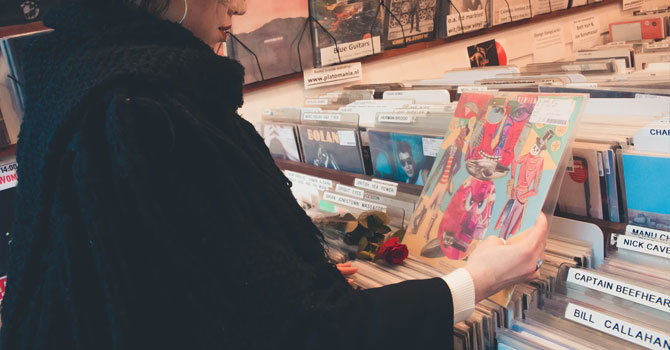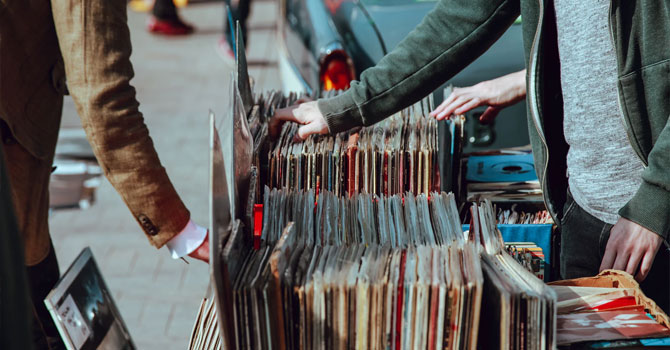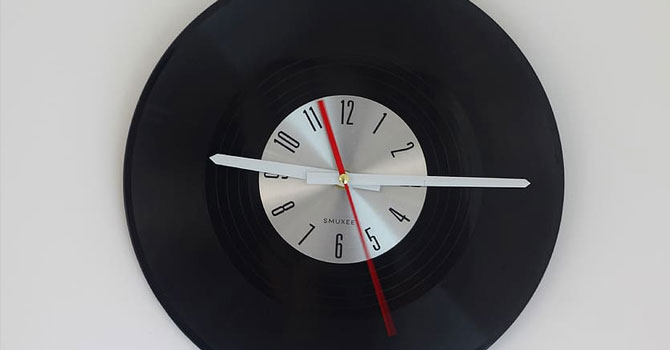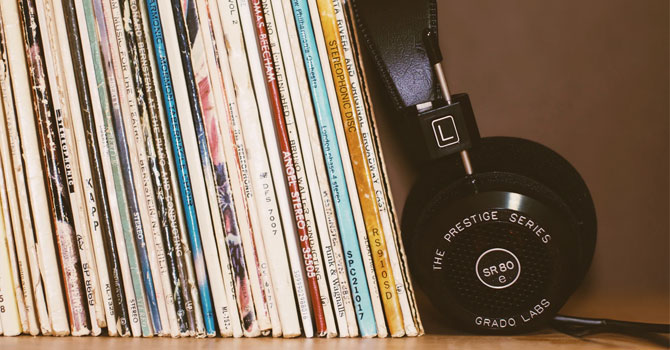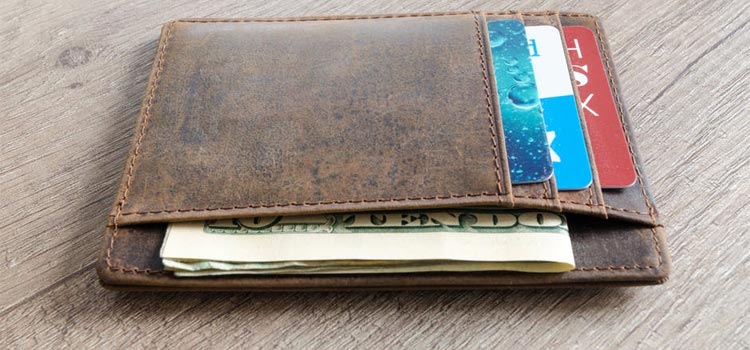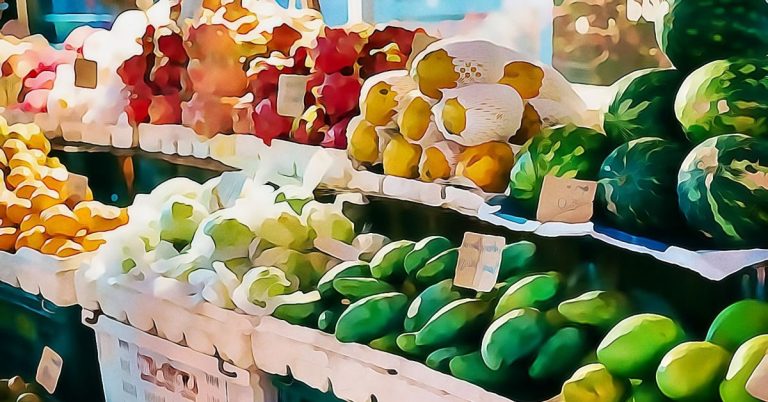It’s probably hard to imagine now, but vinyl records were the standard format for decades before Sony came up with the compact disc in the early 1980s. Since then, music has evolved into MP3s and into streaming, the format we all know and love today.
- Inbox Dollars - Get paid to check your email. $5 bonus just for signing up!
- Survey Junkie - The #1 survey site that doesn't suck. Short surveys, high payouts, simply the best.
- Nielsen - Download their app and get paid $50!
But streaming music on demand can make listeners feel like they don’t really own the music, leaving the door open for a vinyl resurgence in the mid-2000s. There’s just something about buying and collecting vinyl records that fill a need for actual ownership.
The comeback of vinyl has spurred on entrepreneurial types to cash in, and you can certainly join in if you have some quality records to sell.
In today’s article, learn how to sell vinyl records: from determining how valuable your records are to where you should sell them to get as much out of them as you can.
Is Selling Vinyl Records Profitable?
The short answer: Maybe.
Unfortunately, I can’t just predict whether this will be a profitable venture for everyone.
What determines the value of your vinyl records? Two major things: release version and condition.
Release version applies to vinyl albums that have been released multiple times. Some of these pressings are worth more than others, so make sure to find out the release version of the vinyl records you intend to sell.
Condition will greatly influence how much you can sell your albums for. It doesn’t matter how valuable the release version of your album is; if it doesn’t sound or look good, you won’t fetch a very high price for it.
Vinyl records that look like new, such as if the sleeve looks pristine, the record hasn’t been played, and in general doesn’t have visible dents or dings, are almost guaranteed to be worth more.
On the other hand, if the record is warped or the sleeve has scratches, water spots, or any other visible damage, it will be worth considerably less than a pristine one.
While you’re inspecting your vinyl records, you’ll probably want to clean the opened ones, especially if they haven’t been opened in a while. Invest in a high-quality vinyl record cleaner, especially a good brush that will clean dust out of the grooves while not scratching them.
The most widely used guide for buying and selling vinyl records is called the Goldmine® Grading Guide. Check it out and learn it so you can grade the vinyl records you’re selling for yourself.
Other factors that determine the value of your vinyl records include:
- Artist
- Sealed or opened?
- Autographed or not?
- Commercial or promotional?
- Small label or major label?
- Mono or stereo or quadriphonic?
- General release or limited edition?
- Black or colored or picture disc?
- Demand (i.e., are people looking to buy it?)
Additionally, there are websites you can consult to find out the price of your vinyl records.
Popsike is a database updated every two days that aggregates data from eBay’s sold record listings. You can easily search and filter their listings, both from their website and their mobile app.
The number of searches is limited for non-members, and $17.50 can get you full membership and thus unlimited searches for 6 months.
Another website tool to help you price your vinyl records is a site called Discogs, which as you’ll see later, is also a marketplace to buy and sell vinyl records. Records are listed here as individual releases as opposed to per album or master release, so you’d know exactly which release you have. Registering for an account in Discogs is completely free.
Other websites you can use to price your stock are MusicStack and ValueYourMusic where you can search for your records and they give you prices based on data on various auctions.
Where To Get Vinyl Records To Sell
From your own house
If your parents or grandparents were big music fans in their day, they might have a few vinyl records (or a few boxes of them, even) lying around in your basement or your attic.
Start sifting through them, list the titles and whatever metadata you have, and then use the Goldmine® Grading Guide to classify the records you have.
No joke. Here are the fastest ways to make easy money online. Click here to see how.
Group records together based on their condition and release version and create a detailed inventory so you’d have an estimate of how valuable your entire collection is.
Buying from secondhand stores
Stores that sell secondhand items have some potential of earning you some money from flipping records. Thrift stores, used book stores, flea markets, and even garage sales may have some hidden gems.
They may also be more willing to sell them to you if you’re willing to buy them in bulk. Just make sure you have some way to know if what you’re buying has some value.
Buying at record fairs
A record fair is an event where music lovers go to buy and sell records, and sometimes even swap or trade them.
You’ll be more likely to find records that are in good condition here than in garage sales or thrift stores because the people who participate are record collectors themselves, or otherwise in the music business, like record store owners, record producers, or DJs.
The trick is finding out when and where the next record fairs are happening. Check out your social media communities and local message boards to find out.
Where To Sell Vinyl Records
1. Online Through Discogs
Discogs helps you price your records (as we’ve seen above) and is a tool to organize your own personal vinyl collection. It’s also a very popular online marketplace to buy and sell vinyl records.
You already have a strong advantage of being in a community of genuine music and vinyl lovers. Plus, Discogs provides seller tools and shipping materials, allows you to leave your records up as long as it takes, and provides a dedicated support team to resolve whatever issues that you might have.
They do have a price, though; Discogs takes 8% as a fee. Also, they require you to submit highly detailed data and metadata about each record, such as country of release, pressing information, material, artist credits, conditions of the discs and the sleeves, and other identifiers.
Best for: Rare, mint condition vinyl records
2. Online Through CDandLP
Another online marketplace for used music is CDandLP, which has been around almost as long as Discogs.
Each new seller is also required to provide plenty of details for all records they list.
They have a detailed pricing guide, but sellers are free to price their items. Shipping fees are automatically calculated, but sellers outside of France can also set their own shipping methods and fees if they prefer.
Listing is free, but CDandLP does take a commission of 5% to 15% of each sale on their site.
Best for: Rare, mint condition vinyl records
3. Online Through eBay
A popular way to sell vinyl records is through eBay. The advantage of selling through eBay is that you can put up more valuable records for auction and less valuable ones for sale for a set price.
It’s easy to start selling through eBay; a few seconds and you have your account set up (if you haven’t already got one). Plus, eBay has looser metadata standards, so you don’t have to input too many details about what you’re selling.
Thus, you can expect buyers here to be more casual collectors of vinyl.
You can make money from home and it doesn't have to be challenging. Click here to see how.
However, if you haven’t sold anything on eBay, you’d have no seller rating, and you might not get good bids for your records. Plus, eBay charges a 10% fee, cutting in on your possible profits.
Best for: Any of the vinyl records that you want to sell at a fair price
4. Your Local Record Store
If you’re desperate to offload your vinyl records that aren’t in very good condition or not very popular, consider selling them to your local record store.
Not only do you get to help a local business but you can also get some cash for doing so.
If you do wind up selling your vinyl records to your local record shop, make sure to manage your expectations. They need to make a profit off the records you’re selling, so they’ll try to offer you a lowball bid for your records.
If you’ve consulted pricing websites and the Goldmine® Grading Guide, you should have an idea of how much you can get approximately for your records. Be willing to accept a lower offer than you normally would, but don’t allow yourself to be stiffed.
In general, if they say they can’t offer you at least a dollar for a record, it’s not something they want to carry in their store. Worst case scenario, call their bluff and don’t sell it to them. If they really want it, they won’t let you leave.
Your old vinyl records may not be worth as much as you’d like, but it doesn’t mean you can’t earn a few dollars from them.
Best for: Not so rare, not so mint condition vinyl records
5. Garage Sales Or Record Fairs
The point is to go to where the buyers are. And you’ll find plenty of vinyl enthusiasts looking to add to their collections in record fairs or in the grounds when there are concerts or music events.
Location is important here. If you think you can get buyers near where you live, then holding a garage sale is a low-cost, low-overhead way of selling your merchandise.
Otherwise, go where the buyers are. Participate in record fairs so you can find enthusiastic buyers.
If you’re selling other items aside from your vinyl records, here are some garage sale tips to take note of.
Best for: Popular vinyl records that aren’t in mint condition but are in high demand
6. Online through communities of vinyl record collectors
Selling vinyl records straight to collectors may not sound very lucrative (or particularly safe), but just like record fairs, online communities of collectors have plenty of already-enthusiastic, already-searching buyers.
Some of them are very picky about the conditions of the records they’re buying, but some of them are just starting out or are more focused on completing their collection of a certain artist or genre that it doesn’t matter as much whether the record is in mint condition.
Getting to interact and network with like-minded people is a bonus.
You can find plenty of these communities on Facebook Groups, and here are some of the established ones:
Best for: In-demand vinyl records no matter their condition
7. Online Through Selling Apps
Offering your merchandise through a selling app is another option if you want to appeal to a local buyer but don’t have the energy or motivation to host a garage sale.
An advantage is that it’s similar to selling in an online marketplace but there are no fees and you can negotiate prices with the buyer in person.
Here are the five selling apps that we recommend.
Best for: Any of your records that have local buyers
8. Repurpose And Sell Online Through Etsy
The resurgence of vinyl means there’s also a resurgence of vinyl record-themed décor and other knickknacks. With a little DIY spirit and some elbow grease, transform your unsellable vinyl records into crafts and sell them on Etsy or on your own website, if you have one.
Here are some ideas for repurposing vinyl records.
- Jewelry
- Guitar picks
- Clocks
- Canvas for pour paintings
- Coasters
- Cupcake stand
- Stools
If you don’t have the skills, tools, or just don’t have the time for DIY crafts, you can always sell your banged-up records as is and advertise them as good for crafting. Other crafters get their raw materials, you get some money out of them, and everyone’s happy.
Buyers pay for the shipping fees, while you pay a 20-cent listing fee plus 6.75% in transaction and payment processing fees when your records sell.
Best for: Beat up, damaged, heavily played vinyl records
Get More For Your Vinyl Records
Take care of your records.
The main thing to remember is that when you get your vinyl records out of storage, or once you buy them, you’ll need to store them properly.
Make sure to place them upright in a dust-free, waterproof container. Stacking them or laying them flat is going to warp the records.
Also, remember that the sleeves are protective, so keep the records in them. The sleeves will keep dust and other elements away from the records.
Find the coolest, most consistent area in your house and store your records there. Alternatively, if you have too many records to store in your house, find a temperature-controlled storage unit or a space that’s pest-free and has ample ventilation.
Have your most valuable vinyl records appraised.
Having a mere idea of what your records are worth is one thing, but when you have a record in your stock that could be worth hundreds or even thousands of dollars, the best thing you can do is to have those appraised by a professional.
One of the most popular appraisers online is Marshall, more widely known as Mighty John Marshall. You can send in your records to him (minimum of 5) through his website MoneyMusic, which he’ll appraise for $1 per record.
Consider more than one buyer.
Unless you’re looking to move your items really quickly and get cash right away, you’d want to consider as many offers as you can. You want to get the best price, but more importantly, you want to examine all the potential buyers so you can weed out the sketchy ones.
Start Selling Vinyl Records Today!
After all this, you’re probably wondering whether people will buy vinyl records in the first place.
For a vinyl enthusiast, it’s not just that the quality of the audio is much better when playing a vinyl record (some music experts even argue that this is a myth).
The entire experience—taking out the record from its sleeve, putting it on a turntable, and focusing your attention on listening to one side at a time—is almost ritualistic. It adds a new, aesthetic aspect to music that isn’t available in its other usual forms.
Plus, nothing says collectible more than the huge cover art and the liner notes that provide context and a personal glimpse into the artists’ musical journey.
Want to sell other things in your attic?
Do you have other old stuff in your attic aside from vinyl records? You might want to sell them for side cash, too. Here are some articles to show you how.
- Sell Your Old and Used Laptop
- Sell VHS Tapes
- Sell Baseball Cards
- Sell Pokemon Cards
- Sell Baby Clothes
- Sell Your Wedding Dress
- 25 Things to Sell to Make Money Fast
Are you sitting on some vinyl records in your house that you want to get some side cash for? Or do you plan to start buying them up and flipping them? Share your stories with us in the comments below!
